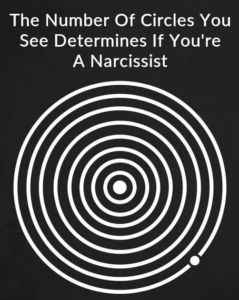A recent viral meme claims that the number of circles you perceive in a specific optical illusion can indicate narcissistic tendencies. This assertion has sparked widespread curiosity and debate across social media platforms. However, experts caution against taking such claims at face value, emphasizing the need to distinguish between entertaining content and scientifically validated assessments.
The Meme’s Claim
The meme in question presents an image filled with overlapping circles and suggests that the number of circles one identifies correlates with their level of narcissism. For instance, seeing more than ten circles might label someone as highly narcissistic, while seeing fewer could imply modesty. This concept plays into the allure of quick, visual personality tests that offer instant self-insights.
The Psychology Behind Optical Illusions
Optical illusions exploit the brain’s visual processing mechanisms, leading to misinterpretations of images. While they can reveal certain aspects of perceptual processing, attributing specific personality traits, such as narcissism, based solely on these illusions lacks empirical support. Dr. Anna Antinori’s research indicates that individuals open to new experiences may perceive visual information differently, but this doesn’t directly link to narcissistic behavior. Axios
The Appeal and Risks of Viral Personality Tests
The popularity of such memes stems from their simplicity and the human desire for self-understanding. However, conflating entertainment with psychological assessment can be misleading. While engaging with these illusions can be fun, they shouldn’t replace comprehensive evaluations conducted by professionals.Know Your Meme
Conclusion
While the “number of circles” meme offers an amusing diversion, it’s essential to approach such content critically. True insights into personality traits like narcissism require validated psychological tools and professional interpretation. Enjoy the illusions for their entertainment value, but be wary of drawing serious conclusions about yourself or others based on them
